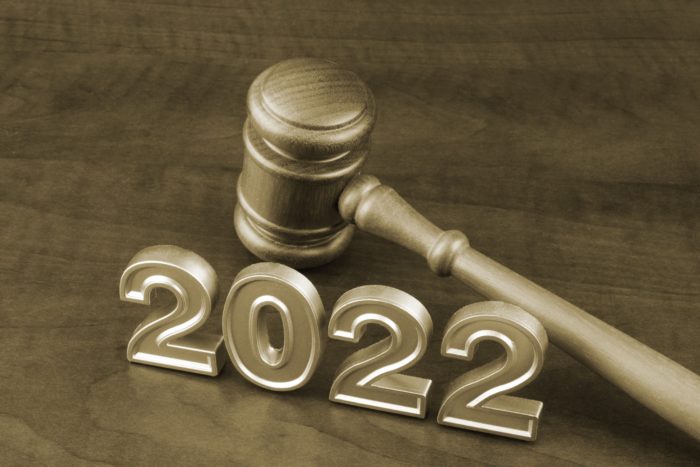
AB 1194, which went into effect on January 1, 2022, makes broad changes to conservatorship and guardianship law. Below, we have summarized some of the more substantive changes to conservatorship and guardianship law brought by AB 1194, though this summary is not meant to be a comprehensive review of all the changes made.
Why Did California Guardianship and Conservatorship Law Change?
Pop star Britney Spears had been under a widely publicized conservatorship that her fans believed was not only unnecessary, but being used to perpetrate financial exploitation of Spears and control her personal life. In response, they launched the “Free Britney” movement to pressure the courts to release Spears from her conservatorship. After several documentaries about Spears’ conservatorship were aired, the public became interested in the issues surrounding Spears’ conservatorship and conservatorship in general.
The movement’s relentless efforts ultimately paid off when the court terminated Spears’ conservatorship in the latter part of 2021, but another important thing happened as well: The issue of disability rights was brought to the forefront. The public was aware of Spears’ conservatorship on account of her fame, but how many others might also be stuck under a restrictive conservatorship and be suffering? AB 1194 was enacted, among other things, to address this possibility.
AB 1194, which makes several notable changes to the California Business and Professions Code and the California Probate Code, is designed to empower conservatees to have a say in decisions being made about their lives and hold private fiduciaries further accountable for their actions.
Read more about the Britney Spears conservatorship.

In What Ways Did AB 1194 Change California’s Conservatorship and Guardianship Laws?
Broadly speaking, the changes made by AB 1194 are geared toward placing additional restrictions and penalties on private fiduciaries who engage in fiduciary misconduct (i.e., wrongful behavior that damages a ward or conservatee), and also toward granting conservatees more power to contest the maintenance or establishment of a conservatorship.
As such, an attorney who regularly represents private fiduciaries or engages in litigation regarding the appointment of a conservator should thoroughly review the changes made under AB 1194 so they can properly advise their clients going forward.
Changes to the California Business and Professions Code
- Section 6563 is added to the Business and Professions code. Section 6563 requires professional fiduciaries with websites to post fee schedules, including hourly rates, on their sites. Professional fiduciaries without websites must provide prospective clients with a fee schedule, including hourly rates, before being retained. Current clients retained prior to January 1, 2022, must also be provided with a fee schedule. Notably, this statute applies to all professional fiduciaries, including trustees and fiduciaries appointed to administer probate estates (i.e., executors and administrators), and is not exclusive to conservatorships.
- Business and Professions Code section 6580 is amended to further define when a professional fiduciary is to be investigated by the Professional Fiduciaries Bureau for impropriety. The previous version of this section stipulated that the Bureau may impose sanctions upon a finding of a breach of fiduciary duty by a professional fiduciary. The revised statute says that the bureau shall impose sanctions upon a finding of a breach of fiduciary duty, a finding of abuse as defined by Welfare and Institutions Code section 15610.07, or a finding that the professional fiduciary violated any other statute or regulation applicable to professional fiduciaries under the Business and Professions Code. Thus, the revisions expand the acts for which a professional fiduciary must be investigated, require an investigation when certain findings are made, and make punishment mandatory upon a finding of impropriety.
- Business and Professions Code section 6580 also now requires the Professional Fiduciaries Bureau to remove the license of a professional fiduciary who knowingly, intentionally or willfully breaches a legal or fiduciary duty to an elder or dependent adult, or is found to have caused physical, monetary or even mental suffering to a client through gross negligence or gross incompetence.
Changes to the California Probate Code
- Probate Code section 2112 is added. This section allows for a professional fiduciary who is found to have abused a ward or conservatee to be liable for punitive damages up to $10,000 for each act of guardianship or conservatorship abuse. Non-professional fiduciaries can also be charged up to $1,000 for each act of abuse. This statue also requires the court to report to the Professional Fiduciaries Bureau if it makes a finding that a professional fiduciary abused their client, or if the professional fiduciary is surcharged, punished for contempt, suspended or removed for cause.
- Probate Code section 1471 is amended to make clear that the role of conservatee’s counsel is as a zealous advocate for conservatee. Previously, the language of the statute indicated that the attorney for a conservatee was appointed to represent the “interests” of the conservatee, which created some ambiguity when the “interests” of the conservatee as determined by the conservatee’s counsel were not aligned with the conservatee’s own wishes. The revision clears up this ambiguity and confirms that the court-appointed counsel’s role in representing a conservatee is not akin to that of a guardian ad litem, who is charged with making decisions on behalf of their principal. Furthermore, this section is amended to require a conservatee to be allowed to retain their preferred counsel even if that counsel is not on the court’s list of court approved court-appointed attorneys.
- Probate code section 1826 is amended to further define the role of the court investigator in conservatorship cases. While there are numerous changes under this section, the most significant appear to be that the court investigator is now required to gather and review relevant medical reports regarding the proposed conservatee from the conservatee’s primary care physician and other relevant mental and physical health care providers, and to subsequently file this information with the court. However, such medical information is to be filed confidentially.
- Probate Code section 1850 is amended to now require that an investigation by the court investigator occur at least once a year after the establishment of a conservatorship. Previously, reviews every two years were allowable.
- Probate Code section 2653 is amended to now require courts to award attorney’s fees to the petitioner on successful petitions removing a guardian or conservator. Previously, such an award was discretionary.
- There are also changes to numerous probate code sections that have the effect of limiting payments for services to guardians or conservators for litigating or opposing actions that are ultimately unsuccessful. For instance, guardians and conservators can no longer be compensated from the estate of their client for defending fee request petitions, opposing petitions or for services rendered in connection to any other unsuccessful request or court proceeding. However, the guardian or conservator may be able to be compensated for a lesser amount if they can prove by clear and convincing evidence that the defense or action was pursued in good faith and in the best interest of the conservatee.
Learn More
Have questions about the changes made to California conservatorship law by AB 1194? Keystone’s conservatorship attorneys can help.
Whether you are an attorney who represents private fiduciaries or you are yourself a private fiduciary, it is important to understand the implications of AB 1194, and the changes it made to conservatorship and guardianship laws. If you need assistance in interpreting AB 1194 or have a specific matter involving a private fiduciary, you can turn to our probate attorneys for help. Call us today to request your free consultation.





